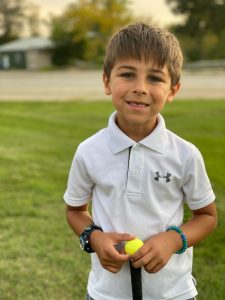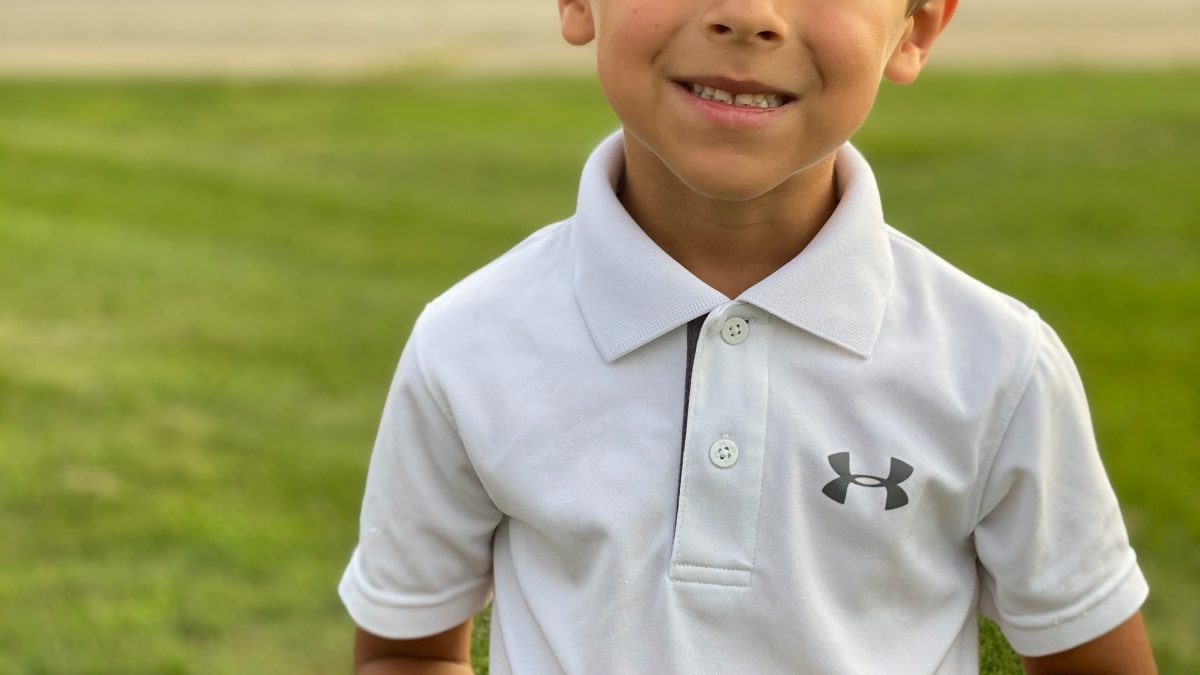Training for Crisis Management
Training for Crisis Management
 My five-year-old grandson, Liam, is scheduled to have open-heart surgery on Tuesday, October 13. Liam is my son Harry’s second child. Harry and his wife Kathryn have four children — three boys and one girl.
My five-year-old grandson, Liam, is scheduled to have open-heart surgery on Tuesday, October 13. Liam is my son Harry’s second child. Harry and his wife Kathryn have four children — three boys and one girl.
Liam was born with a hole in his heart. Over the past five years, we hoped and prayed that as he grew older, the hole would close up and he would not need surgery.
That didn’t happen, so Liam’s doctors recommended that he go through the surgery now rather than later. They said that a delay in the surgery would likely result in additional damage to his heart.
While there are several things that can go wrong with an open-heart surgery, Liam’s doctors have assured his parents that there is a strong likelihood that the surgery will be successful and that he will recover without any problems.
In most situations, when a child is severely injured or must undergo a major surgery, the parents of the child suffer more than the child.
One reason for this is because as a general rule, children do not reach the age of reason or develop critical thinking skills during the first six years of their lives. What this means is that they don’t worry about the surgery or recovery because they accept, without question, their parents’ statements that they are going to get through the surgery and recover without any problems and that they have nothing to worry about.
Their attitude and emotional response to an upcoming surgery is simply a reflection of the attitudes and emotional responses that they observe and experience from their parents and the people around them.
Children rarely have the mental capacity to doubt or question what their parents tell them about an upcoming surgery, unless someone else has told them that they have something to fear.
The problem that many people have when they have a child who has a serious medical condition is that they have a tendency to dwell on the negative things that could happen as a result of the condition. Their thoughts frequently turn into doubt, fear, and anxiety, which can have a negative impact on their physical, mental, and emotional health. If they are not able to control and manage their fear and anxiety, their words and actions can cause significant, long-term harm to their child.
There are some people who were born with the ability to calmly, confidently, and rationally navigate their way through a serious crisis. While most people are not born with this ability, they can be trained to react to a serious crisis in a calm, confident, and rational manner.
A “serious crisis” includes potentially dangerous or negative life-changing events that occur on a personal level or within a family, business, or society. A medical emergency is a serious crisis. An economic collapse is a serious crisis. The pandemic that we’ve been going through is a serious crisis.
The environment that a person grows up in has a lot to do with whether they will be trained to react in a calm, confident, and rational manner to a serious crisis. Many of the young adults in our country today did not grow up in environments that trained them to respond appropriately to a serious crisis. Since they did not learn these important skills, when a crisis occurs, they react with fear, anger, negativity, and in some instances, violence.
How do you train a person to react appropriately to a serious crisis? It’s best to start in the home, when the person is a child. I’ll cover that topic next week, but for now, I need to ask you for a favor.
Liam is blessed to have parents who grew up in homes where they learned the skills that are necessary to handle his heart surgery in a calm, confident, and rational manner, rather than to react with fear, anger, and negativity. More importantly, his parents also grew up in homes where faith in God and prayer were an integral part of their lives.
While I am confident that Liam and his parents will successfully get through the surgery and recovery, their family would greatly benefit from your prayers. That’s the favor I’m asking you for. Would you please pray for Liam and his family?
Next week, I’ll let you know how everything worked out, and I’ll share some ideas on how you can train youself or your children how to respond to a serious crisis in a calm, confident, and rational manner.





6 Comments
I have a child who had heart surgery, I will certainly say a prayer for this family and for Liam’s recovery to good health!
Thanks Rose. I appreciate your prayers and support. Harry
Praying for Liam!
Thanks Dan. We really appreciate your prayers!
[…] Last week I wrote about my five-year-old grandson, Liam, who was scheduled to have open-heart surgery on Tuesday, October 13. At the end of my article, I asked for prayers for Liam. I’m happy to report that the surgery was successful. The surgeon was able to apply a patch that was a little larger than a dime to the hole in Liam’s heart, and after the surgery, Liam’s heart rhythm was normal, and he was placed in the intensive care unit. […]
Hi Harry – long time reader, first time poster. I’m a pediatric clinical psychologist, and I’m sorry to say that this post is not rooted in anything more than cheap, armchair psychology.
“One reason for this is because as a general rule, children do not reach the age of reason or develop critical thinking skills during the first six years of their lives…Their attitude and emotional response to an upcoming surgery is simply a reflection of the attitudes and emotional responses that they observe and experience from their parents and the people around them…Children rarely have the mental capacity to doubt or question what their parents tell them about an upcoming surgery, unless someone else has told them that they have something to fear.”
This statement is particularly dangerous, as we know for certain that kids develop reason and critical thinking skills WELL before 6 years of age. To assume the only feelings, fears, anxieties they will experience (especially a chronically ill child) are fed only through their parent’s input is dangerous, puts undue and overwhelming onus on the parents, and denies the child’s reasoning and emotional health. I was a chronically ill child myself until early college, and your assertion that a child will not remember or have their future formed by these experiences is nonsensical.
“The problem that many people have when they have a child who has a serious medical condition is that they have a tendency to dwell on the negative things that could happen as a result of the condition
This isn’t a personal choice or preference dictated by upringing in a godly, calm, rational house: this is a trauma response.
I appreciate you Harry, and I will pray for Liam, Harry & Kathryn, but this post is irresponsible. It invalidates a child’s personhood, and falsely claims parents can, by sheer will and faith, control their child’s chronic illness experience.